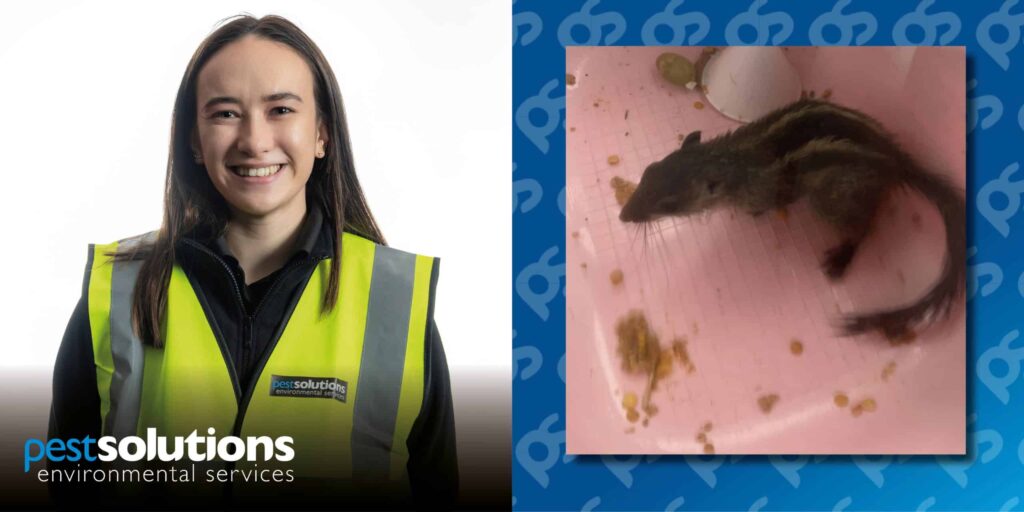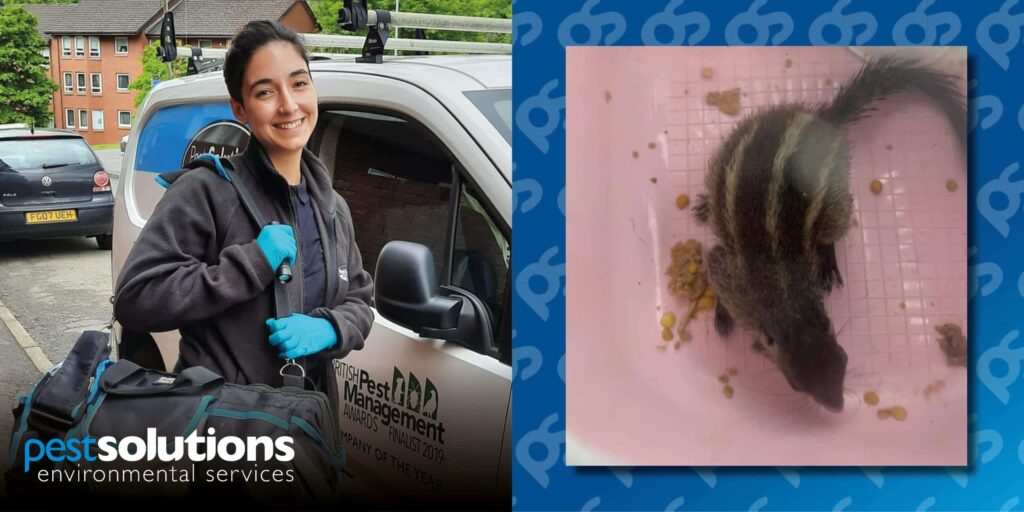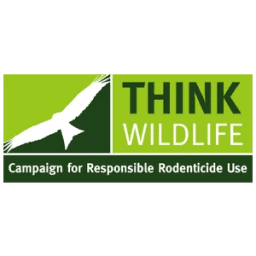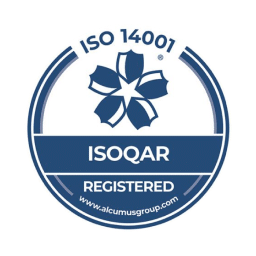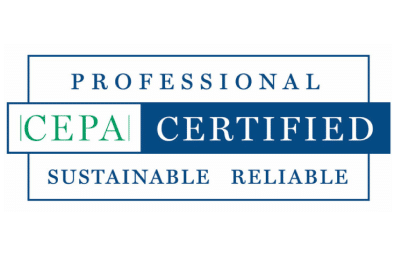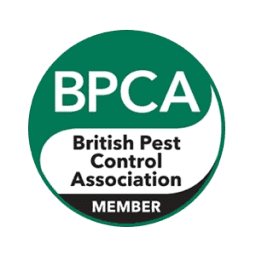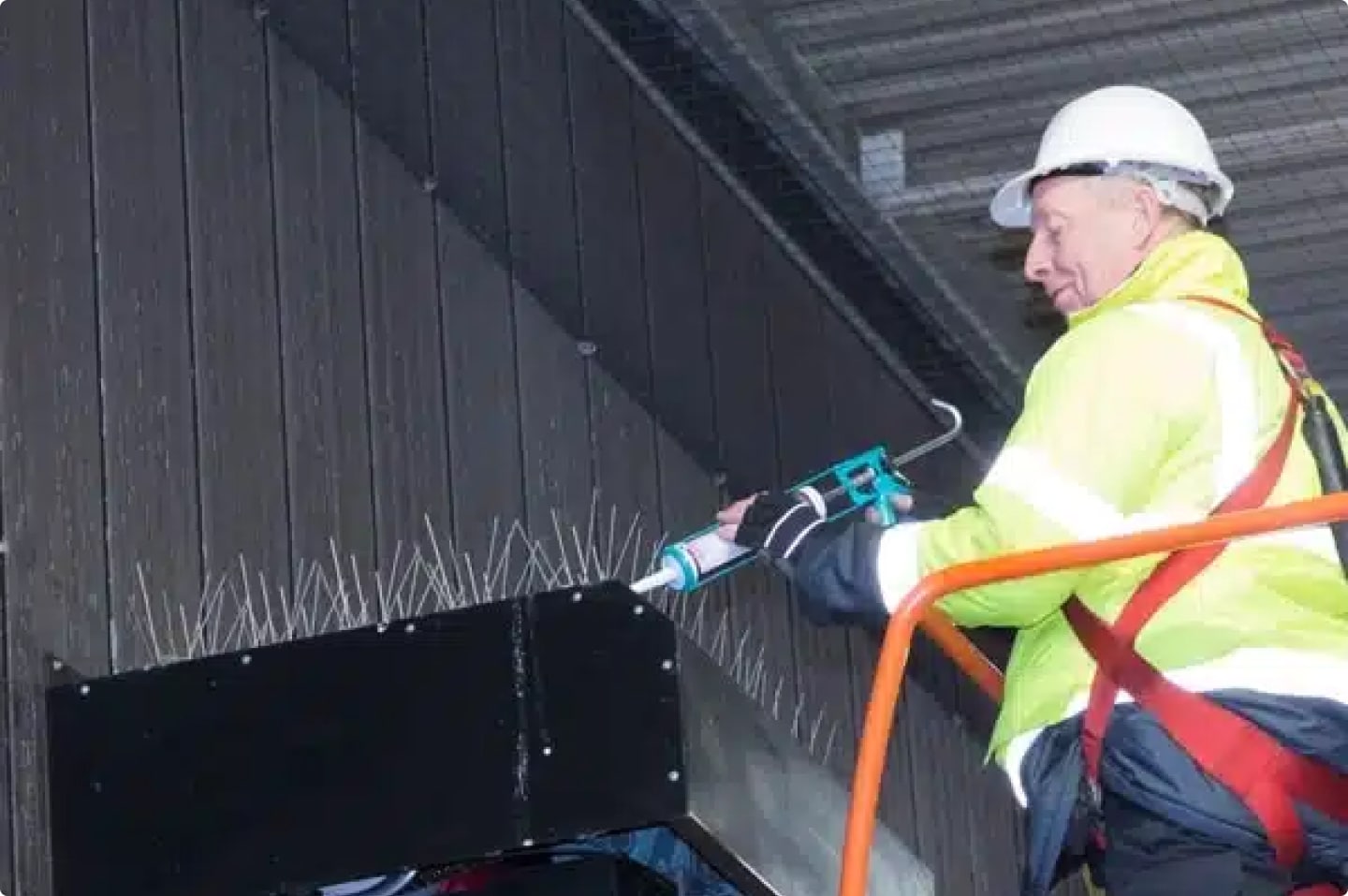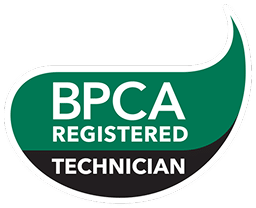Stowaway Indian Palm Squirrel Rescued. Natasha, one of our Graduate Service Technicians, recently received a call-out from a ship agency client to deal with a rodent on the exploration vessel Deep Explorer, docked at Clipper Quay in Aberdeen.
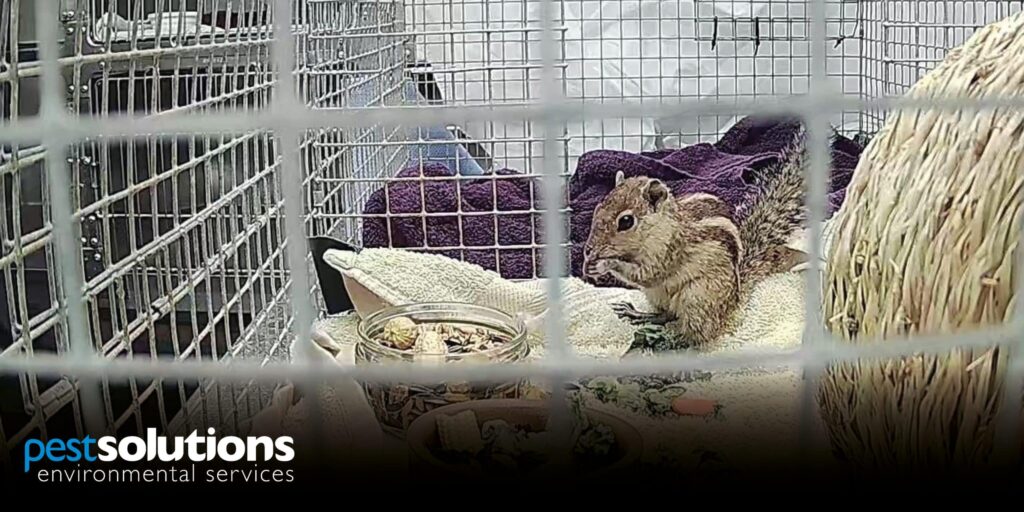
At Pest Solutions, our Aberdeen team regularly carry out work on ships and other offshore vessels docked in the city but this call-out was slightly different to usual.
Three days before in Aberdeen, having travelled from India via Malta, the crew captured a stowaway rodent that they identified as a Squirrel of some kind.
The captain ordered that the squirrel needed to be removed from the ship on safety grounds as he may do damage to sensitive equipment, and this was all the information we had before attending the job.
Apparently, ‘Zippy’, as he was christened by the crew, more than earned his nickname onboard the ship, with his speed and size meaning that it took a good amount of effort before he was finally captured!
When Natasha and her fellow graduate Clara arrived on the scene, they found the unidentified Squirrel had been trapped in a box by the crew and was not a member of an immediately recognisable species.
They were able to safely transfer the squirrel to a cage to allow them to try to identify what it was.
It quickly became clear that it was a Squirrel but not one we had seen before, and further investigation was required.
Using their Zoology training, and the power of the internet, Natasha and Clara could identify that the rather small and fast-moving fellow was an Indian Palm Squirrel.
These squirrels are one of over 40 different squirrel species found in India and are a member of the banded squirrel group, with three distinct white stripes running from head to tail.
Non-Native Species – Do You Know Your Obligations
As professional pest controllers working in towns and cities throughout the UK, most species we encounter are the usual suspects. We all know our native species well and can easily identify what is and is not a “pest” based on our training and experience.
But what about the times when we are faced with the unknown, an animal or insect species that we are unable to identify or have no knowledge of? For many of us working inland, this is not so likely to happen.
Still, there are many of our pest controllers that work in environments where the likelihood of encountering a non-native species is much higher. Such as those who work in harbour ports, container yards, airports, and the like.
What is the right thing to do when faced with a non-native species? As a client are you aware of your obligations? Are you aware of the risks?
This is an area where it is essential that you get the right advice from a professional pest controller that knows and understands the obligations and legal responsibilities of dealing with non- native species.
The Treatment of Non-Native Species
A non-native stowaway animal may be a carrier of diseases that we do not have in the UK, such as rabies. It is your responsibility to understand these risks, and you must ensure that you are wearing suitable PPE to ensure that you are protected from bites or scratches.
It is your responsibility to inform the correct authorities of the existence of any such animal you encounter to request guidance on how it should be treated. Do you know that you are required to contact, report and request advice from the Animal and Plant Health Agency (APHA)? If you were not aware, you are now.
When speaking to Campbell at the Animal and Plant Health Agency, he said: “As you can appreciate, every scenario may be different. Disease risks are dynamic, and each situation will need individual risk assessments. In the first instance, I would recommend calling the numbers detailed according to the location of your incident.”
In Scotland, where Zippy the Squirrel was discovered, the treatment of non-native species is regulated under Section 14 of the Wildlife and Countryside Act 1981 and was amended by the Wildlife and Natural Environment (Scotland) Act 2011.
This legislation states that it is an offence to release an animal, or allow them to escape, outwith its native range.
I guessed that the Indian Palm Squirrel would have originated from India. But Campbell informed me that Malta has a significant resident population of Palm Squirrels as well. That they were the direct result of poor control of non-native species is a good example of why we need to be careful.
The Grey Squirrel – A Cautionary Tale
It is ironic that the discovery of Zippy, a squirrel, has highlighted in the national spotlight, the importance of non-native animal control.
After all, it is another squirrel species, the Grey Squirrel, that is probably the most infamous non-native species introduced to Britain over the past few centuries.
Deliberately introduced in 1876, the Grey Squirrel has since been the largest contributing factor to a dramatic decline in the number of native red squirrels in the UK.
Once widespread across these isles, red squirrels are now close to extinct in England and Wales, with only around 140,000 left in the whole UK according to the Wildlife Trust. In comparison, there are an estimated 2.5 million grey squirrels.
The reason for this relatively rapid colonisation is that the larger Grey Squirrel dominates its smaller cousin in competition over shelter and food, and carries the Squirrel Pox virus which is deadly to Reds.
For those in the Pest Control industry, this tale will be very familiar to you, but it is as important as it is well-known as it highlights just a few of the risks of allowing non-native species to roam freely.
Although Grey Squirrels may be the most familiar to many, so many of the species that we now know as common pests were introduced to our shores on vessels transporting goods from abroad.
If only the sailors on those ships had been as careful as those who captured Zippy!
The Happy Ending For Zippy The Squirrel
Upon identifying Zippy as a non-native species, Natasha and Clara contacted the North East Wildlife and Animal Rescue Centre, the largest wildlife rescue in the North of Scotland, who are based in Aberdeenshire and specialise in wildlife rehabilitation.
Also known as New Arc, this charity’s main work is taking in injured and orphaned birds and mammals, healing them back to health, and releasing them back into the wild.
For all the reasons mentioned, releasing Zippy was not an option in this case.
After removing him from the Deep Explorer, Natasha and Clara transported “Zippy” the Indian Palm Squirrel, to The New Arc animal sanctuary, where he underwent a planned period of quarantine and is being looked after well.
Initially, Zippy was slightly panicked and tired upon arrival (who wouldn’t be after 3 months at sea!) but has now settled down and is displaying all the common behavioural patterns expected from a healthy squirrel.
He is being kept in a large cage in a warm area, Scotland’s climate isn’t quite as warm as Zippy is used to, until a suitable home is found.
Initially, the New Arc team investigated if it would be possible to have Zippy sent back home, but this is thought to be unlikely for logistical and welfare reasons and they are now seeking to have him rehomed in the UK.
They are currently in the process of contacting zoos and other wildlife centres in an attempt to find the perfect place for the adventurous Zippy to live the rest of his life alongside his own kind.
When we first heard about Zippy we were amazed and impressed by his incredible three-month long adventure and it turned out we weren’t the only ones! Zippy’s story found its way into many newspapers and online news outlets both in the UK and abroad and even gained an article in the New York Post.
Our Commitment To Non-Native Species Treatment
We are always incredibly proud of the work that our service team does in the field and the way that Natasha and Clara handled the discovery of an unknown species was a fantastic example of how non-native species should be dealt with in the pest control industry.
They not only ensured that Zippy was dealt with in the most humane manner possible when being removed from the vessel, but also that they contacted the appropriate local animal welfare experts to give him the best chance of survival in this country.
As a pest control company, we are fully committed to helping tackle the rising number of invasive non-native species entering the country.
An invasive non-native species is one which poses a threat to the environment, economy, public health, or our way of life, according to the Woodland Trust.
It is thought that around 40% of all animal extinctions across the World over the past 400 years were a direct consequence of non-native species.
There are now around 2000 non-native species in the UK, with around 10-12 new ones coming in every single year.
Around 30 of these are a genuine concern due to the threat they pose to native species.
The early detection of these species is crucial to preventing the spread of disease and protecting of our biodiversity.
All of our technicians here at Pest Solutions are aware of their responsibilities as potential first responders to non-native species discovery and are committed to preventative action.
As the case of Zippy shows, our technicians are already doing great work in this regard, and the exemplary action of Natasha and Clara in this case demonstrates the care and attention they bring to every single job.
Anyone who discovers what they believe to be a non-native species should avoid releasing it into the wild at all costs, instead informing the relevant authorities and keeping the said animal as isolated as possible until they arrive.
